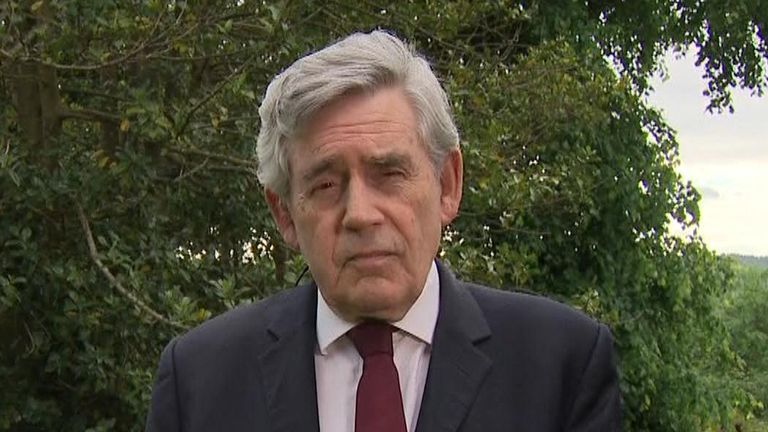Air passenger numbers collapse – but which airports saw the biggest decline?
Passenger numbers plummeted by 223 million last year, as a result of the COVID-19 outbreak, new figures show.
Only around 74 million people travelled through UK airports in 2020 – less than a quarter of the 297 million from the year before, data from the Civil Aviation Authority reveals.
The airport which saw the largest drop in travellers was Cardiff, which took a hit of 86.7%, followed by Glasgow Prestwick, which saw a decline of 85.8%.
Southampton saw a drop of 83.4%, London City’s passengers fell by 82.3% and Leeds Bradford’s numbers reduced by 81.2%.
London Heathrow, the country’s largest airport, and one of the busiest in the world, recorded a 72.7% fall in numbers to 22.1 million – down from 80.9 million the year before.
It comes amid the near-total collapse of international travel not just in the UK, but globally, as a result of the pandemic.
There had been a partial recovery over summer and early autumn last year, but once restrictions were re-imposed around the UK, travel all but stopped again.
The Airport Operators Association (AOA) has said the figures show the “devastating impact” of the pandemic on the industry.
AOA chief executive Karen Dee said: “These figures lay bare the devastating impact COVID-19 has had on UK airports.
Subscribe to the Backstage podcast on Apple Podcasts, Google Podcasts, Spotify, Spreaker
“With passengers down nearly 90% between April and December 2020, airports’ economic output was decimated and significant numbers of jobs were lost.”
With travellers from almost every tourist destination on the planet currently required to go into quarantine when they return to the UK, Ms Dee warned that the government’s “overly cautious” approach to reopening travel means summer will be “as bad, if not worse, than 2020”.
She added: “This leaves UK airports trailing behind international competitors in the EU and US, who not only received significantly more financial support from their governments but are also now able to restart travel over the summer.
“To ensure there are viable airports to support the economy and government agendas like global Britain and levelling up, the government now faces the choice of either meaningfully restarting aviation or setting out a comprehensive package of support to compensate airports for the impact of government policy.”
A DfT spokesperson said: “We have provided the aviation sector with £7 billion of support since the pandemic began and established the Global Travel Taskforce to establish a plan for a safe return to international travel.
“However, our policy on international travel is guided by one overwhelming priority – public health – and we cannot risk sacrificing the progress we have made in our vaccination effort.
“That’s why our traffic light allocations are based on a range of health factors including genomic surveillance capability, COVID-19 transmission risk and Variant of Concern transmission risk.”
